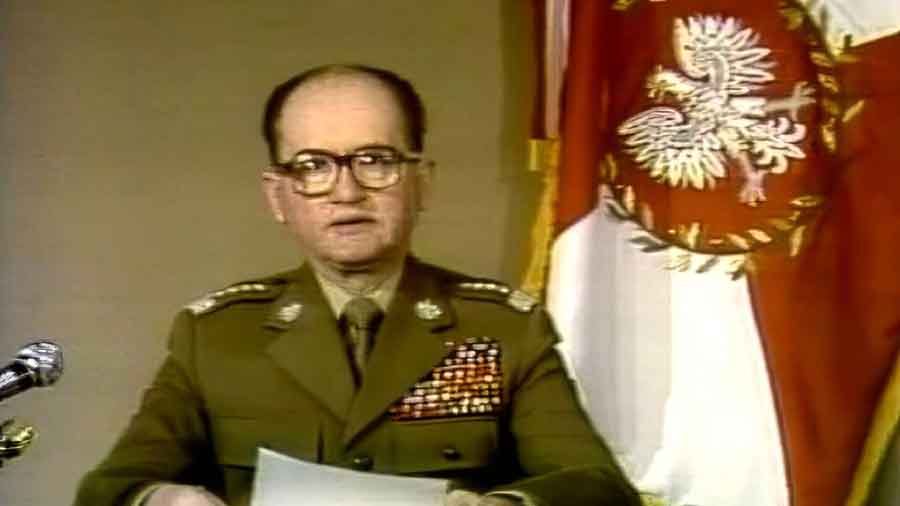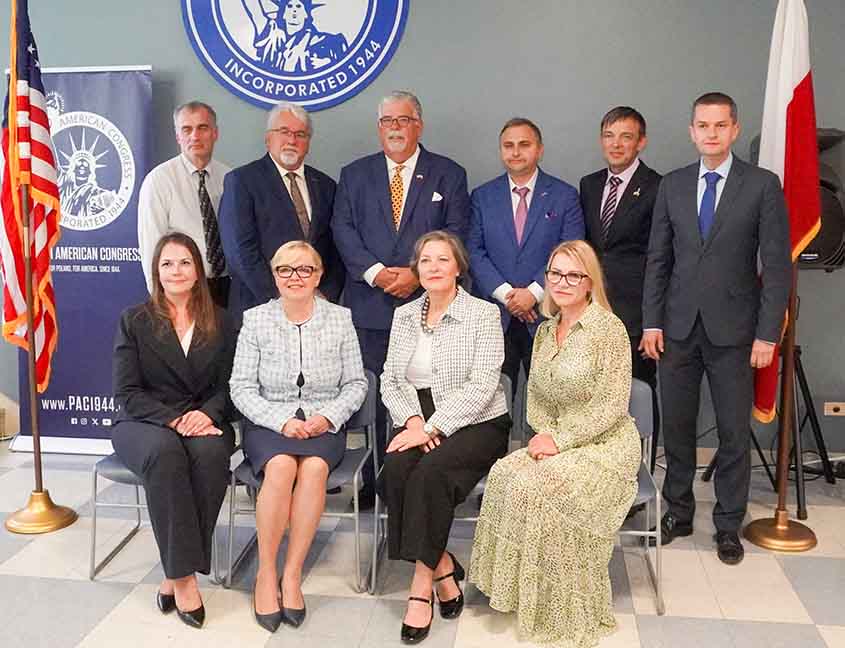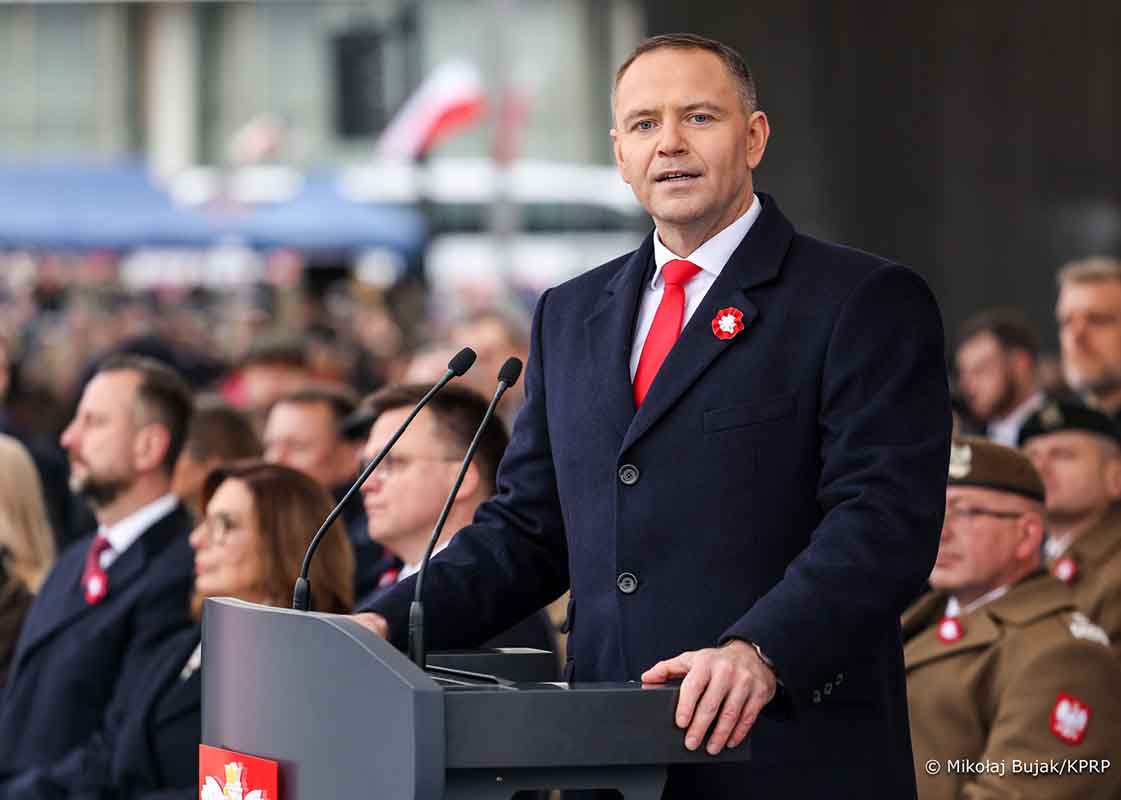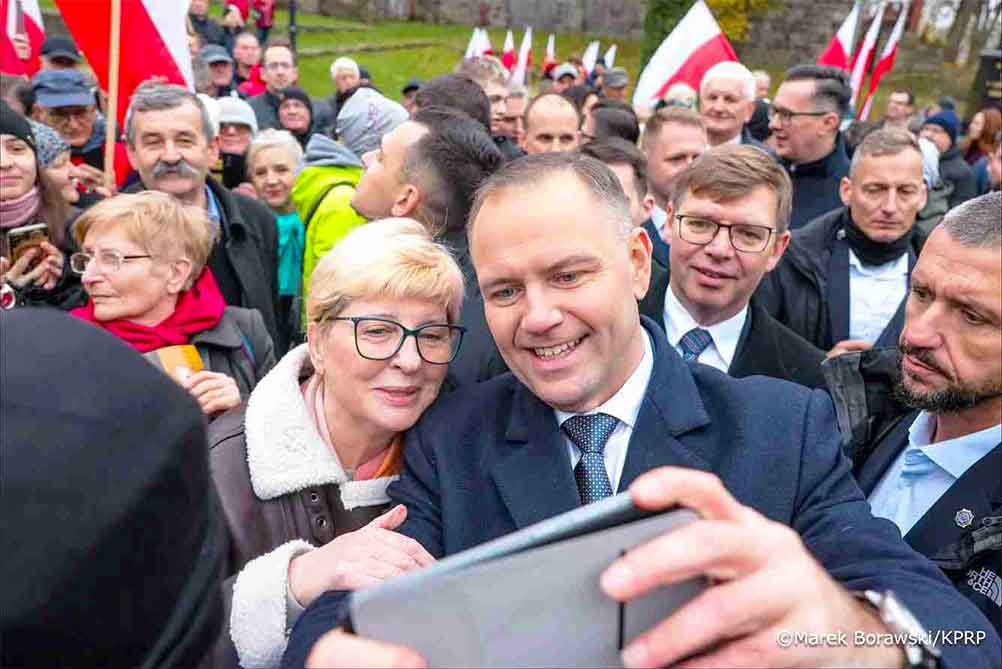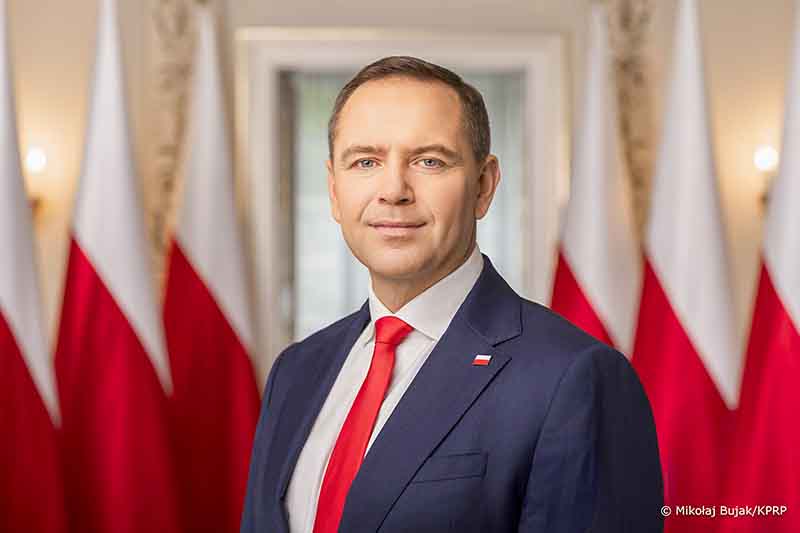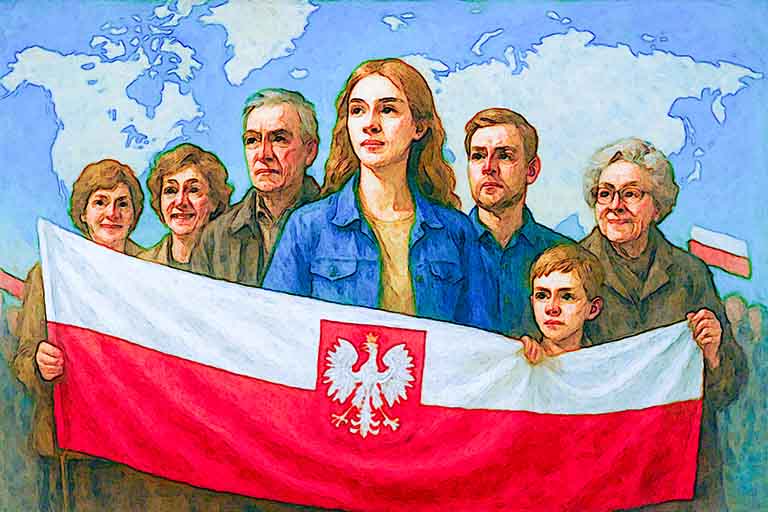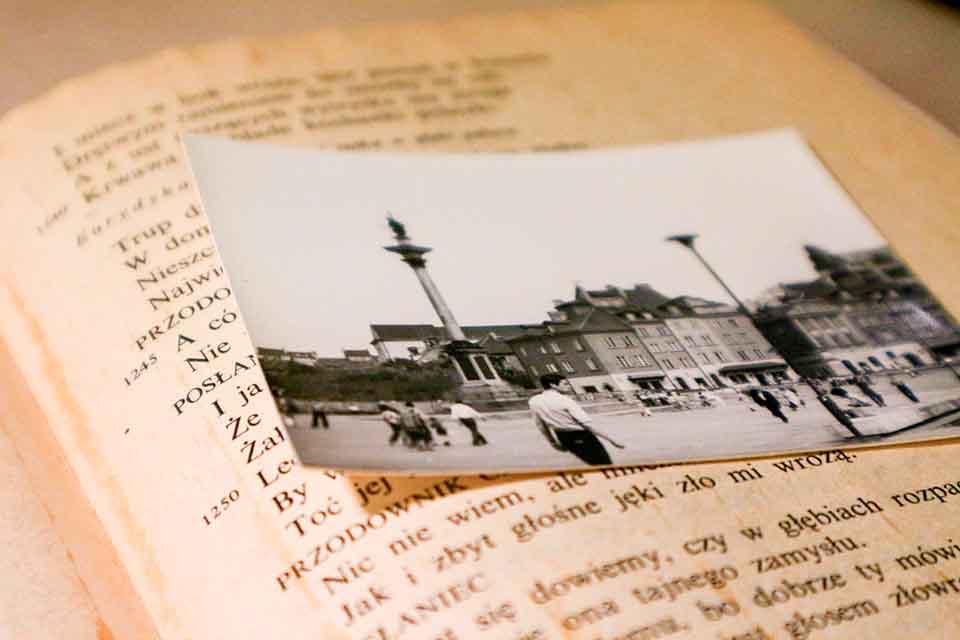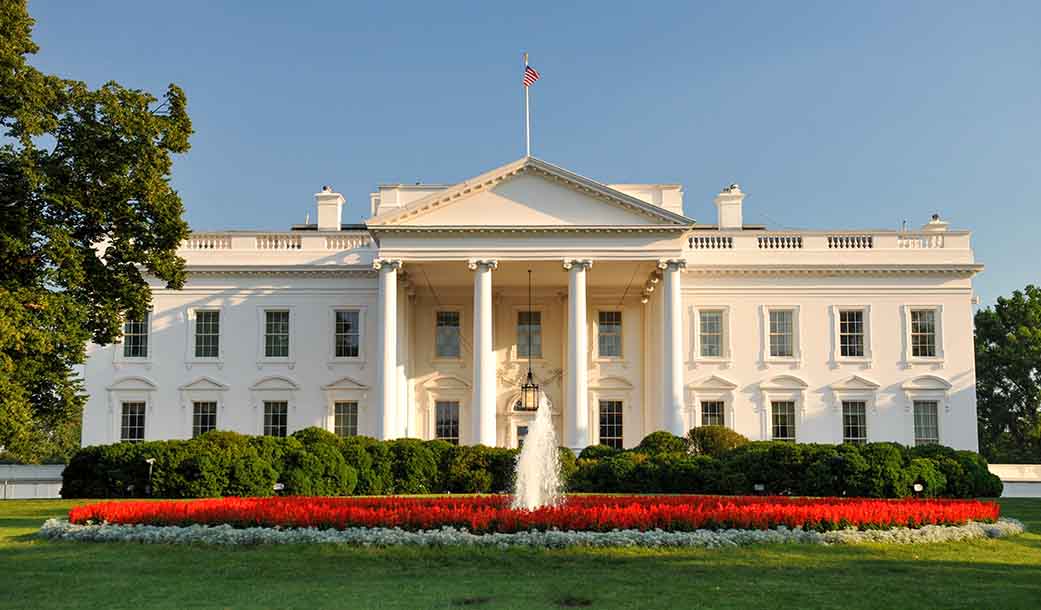The new political arrangement, with President Karol Nawrocki as its architect, will likely be based on a broad coalition of various parties, clubs, and groups. This new arrangement presents a remarkable opportunity: the genuine inclusion of the Polish diaspora in the public life of the country's Polish diaspora, which for decades has remained on the margins of national debate, despite possessing—especially here in the United States—enormous potential, both human and financial.
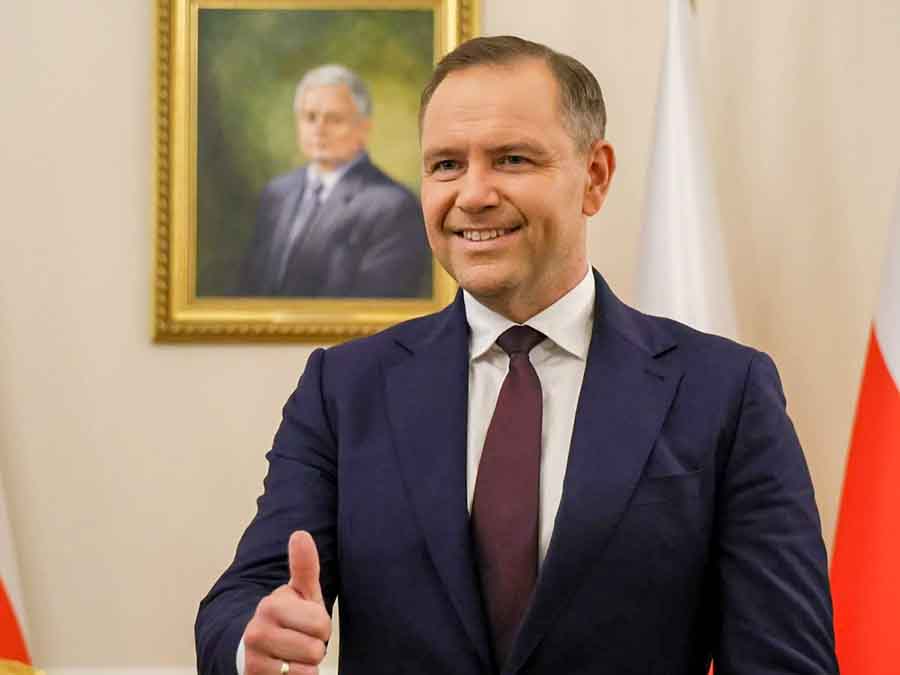
President Karol Nawrocki (Source: PAP/Paweł Supernak)
A prime example of the omission of the Polish diaspora is the recent presidential debate [in Poland], in which neither candidate even mentioned the over 20 million members of the Polish diaspora. Building such a new political system requires deep faith in Poland and all Poles around the world.
This hasn't happened since the beginning of the Third Polish Republic. I regret to remind you that Ryszard Kaczorowski, the last legal president of the Republic of Poland in exile, was not invited to the Round Table talks. We know that, after 1989, Polish emigration was not integrated into the political lifeblood of the resurgent Poland. A dangerous division of the Polish nation was then created, into post-communist elites who, as Democratic Left Alliance (SLD) activist Włodzimierz Czarzasty put it, "reached an agreement" with the communists at the Round Table in 1989. This resulted, among other things, in barring representation of patriotic, independence-oriented groups, and Polish emigrants from power.
This is evidenced by a document published by the Military Historical Office on 15 February 1990. It presents the previously planned meeting of the President of the Republic of Poland in exile, Ryszard Kaczorowski, with the Prime Minister of the Republic of Poland in Warsaw, Tadeusz Mazowiecki, during his visit to Great Britain, which ultimately did not take place due to protocol reasons.
President Ryszard Kaczorowski, together with his government, proposed a meeting with the Polish delegation on February 12, 1990, in a separate room, after Prime Minister Mazowiecki’s meeting with the Polish community in London at the Polish Social and Cultural Centre, with the ceremonial of the “entrance of the President of the Republic of Poland” observed – which Prime Minister Mazowiecki considered humiliating towards President Jaruzelski, his government and the state.
During a meeting with the Polish diaspora, Prime Minister Mazowiecki was asked: "Why are there still communists in his government, and Wojciech Jaruzelski is president?" Prime Minister Mazowiecki replied: "Thanks to these people, Poland has changed, and I am the prime minister." Thus, a model of transformation was chosen, consistent with the then-established Magdalenka contract. This led to a deep division within the Polish nation and the marginalization of the Polish diaspora, the effects of which are still felt today.
Post-communist elites today do not act in the state's interest, but are guided by particularism, peripheral minimalism, and the influence of lobbyists and foreign services. They block the advancement of young, educated Poles, forcing them to emigrate, while providing their own children with privileged positions in public administration, local governments, and state-owned companies.
This wasn't the first time Polish Americans had been rejected. It's worth recalling the fate of American volunteers from the Blue Army, who were demobilized by the Polish Army at the time of the attack by the Red Army under Tukhachevsky. Marshal Piłsudski's political decision was a blow to the trust of American Polish Americans in the Polish state.
Today, when a real opportunity arises to restore the Polish diaspora to its rightful place, we must seize this opportunity. It's time to end Magdalenka's contracts. It's time to open Poland to people who don't have communist connections but possess the energy, skills, know-how, knowledge, and are loyal to their homeland.
However, today, most Polish leadership elites treat the Polish American community instrumentally. They fail to see the potential of Polish Americans primarily because they know little about them. If Poland had a clear strategic plan and thoroughly researched its diaspora, the country would invest significant resources in developing the Polish diaspora's presence and influence in the United States.
What Did the Polish American Community Do for Poland?
For the past 100 years, the Polish American community has unconditionally and uncritically supported the Polish nation and state. Over 22,000 volunteers left the United States for Europe to join the Blue Army and shed blood for their homeland. The Polish community also supported Poland through the Organization of the American Relief Effort in Poland (1919–1923), which donated the equivalent of $250 million to Poland.
Following the betrayal at Yalta and the severance of the nation's continuity, the Polish American community—in cooperation with the London government—became the sole true representative of the Polish national interest in the West. Under the Displaced Persons Program, approximately 150,000 Poles were accepted in the United States. In turn, the UNRRA, also thanks to pressure from the American diaspora, provided Poland with $453 million in aid.
It was the Polish American community that led to the US Congressional investigation into the Katyn Massacre and the recognition of the Soviet Union as the perpetrator. It also facilitated US involvement in efforts to secure German recognition of the Polish border on the Oder-Neisse River and co-financed the activities of Radio Free Europe.
Other spectacular successes include the issuance of a postage stamp commemorating the Millennium of the Polish State – depicting a white eagle with a crown and a Catholic cross – and securing the US government's participation in the National Endowment for Democracy (NED) program, which supported the underground Solidarity movement during martial law.
The Polish diaspora also played a significant role in establishing the Polish American Enterprise Fund (PAEF), which supported Poland's economic transformation after 1989. It initiated legislative action to facilitate the acquisition of political refugee status by those fleeing the Polish People's Republic.
Thanks to effective lobbying, over 9 million signatures were collected on a petition supporting Poland's accession to NATO. The Polish diaspora also provided Poland with $200 million in material aid, including medical equipment and relief efforts following the floods of 1997 and 2001.
It was also the Polish diaspora that stood up in defense of the Katyn Monument in New Jersey and opposed the US Act 447. These actions were taken without consultation with the government in Warsaw, as it was reluctant to react to the activities of the Polish diaspora.
Every year, the Polish diaspora in the United States sends approximately USD 900 million to Poland (data: World Bank, prepared by: Migration Policy Institute) – these amounts are comparable to the investments of foreign corporations in Poland.
Behind all these initiatives are Poles and Americans of Polish descent living in the USA.
Surveillance of the Polish Diaspora
The patriotic activities of the Polish diaspora were not accepted by the communist authorities; quite the opposite. Already during World War II, Soviet intelligence deployed hundreds of agents to disintegrate the Polish diaspora. Later, the Polish security service took over this primary task. The goal of the Polish and Soviet security services was to completely disintegrate the patriotic Polish diaspora, a state of affairs that persists to this day. However, the role of the communist security service was assumed by other services.
No comprehensive monograph on this topic has been published since 1989, and observing the activities of the Institute of National Remembrance (IPN), one might get the impression that the task of investigating the Polish diaspora will likely remain unfulfilled. While individual studies do appear, they will never fully capture the scale and process of surveillance of the Polish diaspora.
Although the Polish People's Republic has been gone for nearly 30 years, many of those "tasked" with destroying emigration still grace receptions at Polish diplomatic missions, parades, and religious ceremonies, or even lead Polish parades in major American cities. The process of demystifying the history of emigration based on the Institute of National Remembrance's archival collections, including the so-called restricted collection, remains imperfect to this day. One gets the impression that historians eagerly focus on the immediate post-war years, but avoid, for example, the 1980s, a period crucial to our present day and the building of many careers, including those in emigration. This raises a new question: How many of these secret service agents were recruited into the American services, and why is no one in Poland so keen on vetting the Polish diaspora?
According to my information, the Institute of National Remembrance has 867 file references relating to the Polish diaspora, created between 1918 and 1989. Isn't it time to finally compile and publish them?
Translation from Polish by Andrew Wozniewicz.
Read the continuation: Will President Karol Nawrocki Restore the Polish Diaspora to Poland? – Part II







